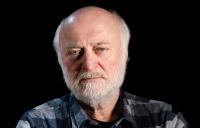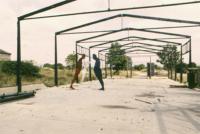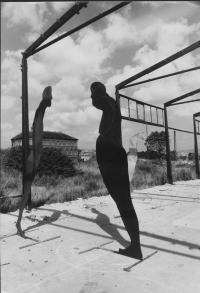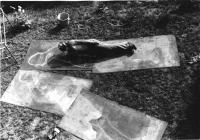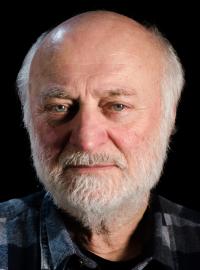I tried to show what was wrong in society

Stáhnout obrázek
Václav Bláha was born on 1 April 1949 in Prague. He inherited his talent and passion for art from his father, Václav Bláha, a respected book designer. In 1964 he graduated from the Secondary Vocational School of Art in Prague and went on to study monumental art at the Academy of Fine Arts in Prague. Although he earned his degree in 1974, he was not accepted into the Fine Artists‘ Fund, nor did he receive any scholarship money, which was a standard means of supporting artists during Socialism. This was because he had never joined the Socialist Youth Union or the Communist Party, and he was openly critical of Communist ideals. He was briefly employed as a secondary-school teacher and then worked as a restorer. He co-founded the artistic association 12/15 Better Late Than Never, which organised exhibitions and artistic gatherings in the 1980s. He was never a recognised artist of the regime; Communist functionaries described his works as unsuitable, perhaps because he endeavoured to express his feelings and opinions on what he considered wrong about Socialist society. Besides painting, he also created art installations. One of them, Průnik (Intersection), was displayed in Charlotte in the US. Another of his works, Evropský dům (European House), stands in the country outside of Eschlkam in Germany. After 1989 he devoted his time to the administration of his family‘s property, and he saw to the renovation of Prčice Hall, which was returned to his wife‘s family in restitution.
